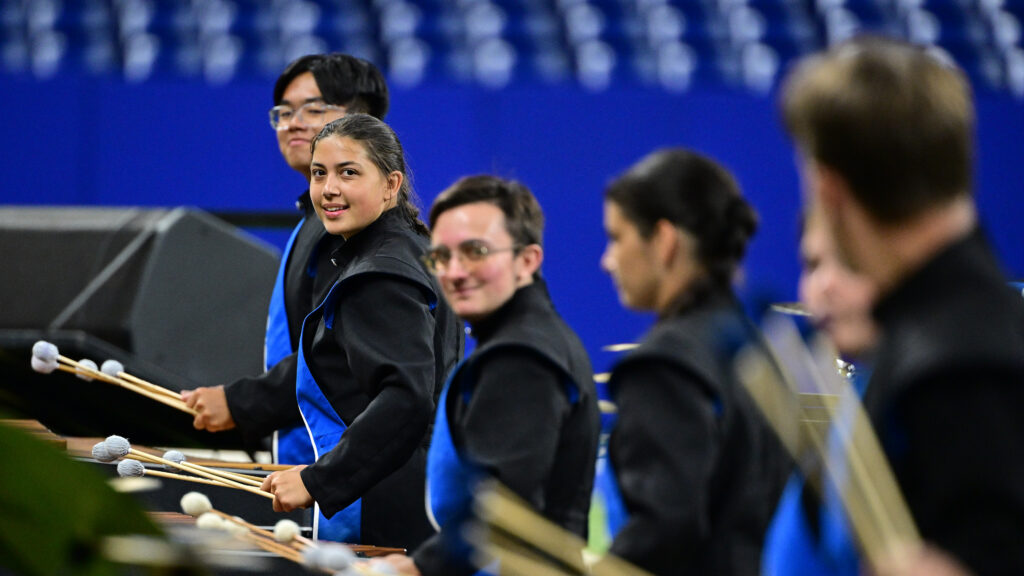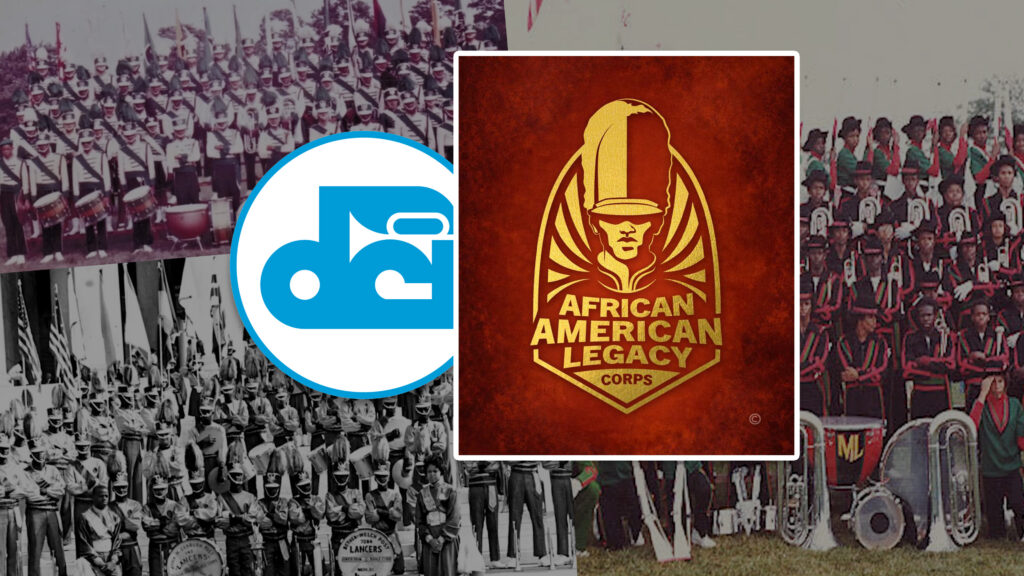Joel Barnes, a Crossmen mellophone player and a math major at Yale University, will be contributing a weekly column to DCI.org. Here’s his second installment. “It takes only five minutes to learn, but a lifetime to master!” How many times have you seen that on the side of a game box, promising full enjoyment of the product with minimal effort required?

Well, sorry folks, because if you’re looking for an activity that takes minutes to learn, you came to the wrong Web site. In fact, you can’t even learn drum corps in a year. Or even two. Ladies and gentlemen, it is an established fact that learning how to “do” drum corps takes exactly three summers.
How do I know this? Well, first of all, when I was a rookie (and nearly into stage two: “super sophomore”), I heard this theory put forward by my esteemed brass instructor, Aaron Goldberg. Fortunately it stuck in my head (instead of just dismissing it as another invention by “the man”).
Most importantly, though, after finishing my third season marching with the Crossmen, I have determined it to be true for myself. Here’s how it works: Year One: The Rookie You did it. You tried out for a drum corps, and you made it. You’ve already been to a few camps, and of course you marched in your high school band for four years and were a section leader and soloist. You know what this is all about, and you’re ready for it.
You know there are these guys called “vets” and you look up to them, but you don’t ever want to hear, “When I was a rookie …” So you start getting in on the e-mail groups, giving your opinions, and you think you’ve got a pretty good handle on things. Suddenly tour hits, and you’re thrust into one of two groups. Group A: The Clueless rookie You lose a glove before every performance. You go through three dot books.
Everything is overwhelming, instructors are yelling at you, vets are sighing every time you try to do something, and your seat partner just wants you to keep your stuff in your own space. You just get this glazed look for the rest of the season and hope you don’t screw up too many more times before it’s over.
Before you know it, it’s finals and you’ve got a medal around your neck. Sure, everyone still only knows you by the nickname you have no idea how you got, but you’re still part of your corps, and part of the family. Group B: The Cocky rookie The cocky rookie (this was me) always knows what’s going on, and why it’s wrong. He knows the dots of the guys next to him, and he knows that he went to his dot without even looking.
If an instructor is yelling at him, there’s a good reason why, and it usually has something to do with the guy next to him. Deep down though, this guy is just as clueless as clueless rookie, and both of them are asking everybody on the bus if they’ve seen their shoes. Fortunately, these are gross generalizations, and most rookies fall somewhere in between these groups (and they’re still great people — after all, they’re in drum corps).
Somewhere toward the end of the year, though, you start to figure it all out, and suddenly you start thinking about next year, about how great everything is going to be and how you’re going to show everyone how it’s done. You become (for however short a time), the “Super Sophomore.” Year 2: Super sophomore and beyond No one likes a super sophomore. And yet everyone is one, at least for a bit. If you’re lucky, you figure out pretty quick that you still don’t know a thing about how it all really works.
Last year you were too busy either looking for your shoes, thinking about ways to tell the girl next to you that she was off her dot (sorry, Autumn), or (as in my case) both. So now you really start paying attention. You listen to instructors, not just trying to figure out what they’re trying to get you to do, but why. You watch section leaders and captains because you need to know what it takes to become one.
You start to realize there’s way more to getting your show right than knowing the music and your dots. Year two flies by because you’re learning so much all the time. I didn’t even figure out how to carry my freakin’ suitcase (and pillow, sleeping bag, day bag, shoes, water bottle, towel …) until the beginning of my third year. Unfortunately there’s just so much to learn, and somehow not enough time to do it.
Finals rolls around, and there you are, crawling around the floor of the bus looking for your shoes again. Alright, so I was really bad at finding my shoes, but everyone’s got something. Year 3: On top of the world You start winter camps, and it’s like a light bulb went off. Suddenly everything makes sense. You know why the rookies act the way they do. You know why the first-year vets act the way they do.
You suddenly know what to say to the guy who’s panicking about auditions (it’s a good thing they made you section leader!). Best of all, you really start to enjoy it. When things are clicking, you actually hear them clicking (or ringing, if we’re talkin’ overtones).
You know when to speak up, and when to sit back and let things develop on their own. You wish you had known everything you do now when you started, but unfortunately there’s no shortcut. There’s no substitute for experience (and I didn’t lose my shoes once!). The Point I’m not trying to say that rookies can’t be any good, or that you can’t contribute to your corps as a second-year member, or anything like that.
The fact that learning drum corps is so hard is a great thing. It means that even as a second- or third-year member, there’s still so much left to do. After you’ve marched five years and want to become an instructor, I’m sure the process starts all over again. There’s just no end to the things you can learn, and the person you can become from doing drum corps.
I attribute the character and leadership I’ve developed to that second year of drum corps, when I finally figured out the people that had it figured out, and started watching them. I’m talking about staff, yes, but I’m really talking about my fellow members and friends, guys like Pat, Gus, Becky, Juzeh and others, the best people I’ve ever met. I hope you all get the chance to join a drum corps and meet people like that, or if you already have, I hope you have the chance to go back and learn some more.
Hopefully my little article will move you along that path just a little faster. Joel Barnes’ past columns: 109,440 Minutes Joel Barnes has completed three seasons with the Crossmen, where he served as mellophone section leader and soloist for the 2005 season.
He is 21 years old (DCI class of ’06), and in the off-season he keeps busy by attending Yale University, from which he intends to receive a bachelors degree in mathematics this coming June. Joel keeps his legs and chops in shape by playing on the Yale Ultimate Frisbee team, and with the Yale Precision Marching Band, respectively. Feel free to E-mail him at [email protected] with questions regarding the Crossmen, drum corps in general, or your math homework.





